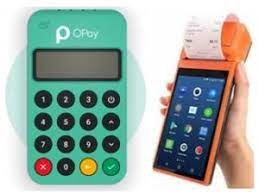OPay, Moniepoint, Palmpay and other financial technologies (fintechs) are increasingly being used by Nigerians, who complain of excessive transaction charges by traditional banks. With burgeoning customers, PAUL OKAH asks if fintechs are taking over the role of traditional banks.
OPay, Moniepoint, Palmpay and other financial technologies (fintechs) were arguably not popular or acceptable until the infamous Naira re-design policy by the Central Bank of Nigeria (CBN) that necessitated cash scarcity from February to April, this year.
With perceived excessive transaction charges by traditional banks, since there was no cash in circulation, Nigerians unwittingly opted for financial technologies (fintechs), especially as the traditional banks continually reported failed transactions and facing network issues.
Apart from reliable networks provided by the financial technologies (fintechs), the zero transaction charges offered incentives to users, including users getting bonuses for using the app, as opposed to traditional banks debiting customers for receiving or sending money.
Customers’ experiences
Speaking with Blueprint Weekend, a civil servant, Abdulrahman Musa, said he embraced Opay because of excessive charges by traditional banks.
“I am someone that is suspicious, especially with stories of desperate Nigerians using different avenues to scam unsuspecting members of the public. However, I was forced to consider using Opay when I was charged over N800 by my bank for transacting within a month. I was like, it is too much because I can’t remember doing much transactions to warrant such an excessive charge by UBA.
“It was even my wife that created the Opay account for me and I had to reluctantly start using it, especially when I got zero charges for my transactions in a month. Whereas UBA will charge me over N50 for transferring money to another bank account and also charge me for receiving money from clients, Opay wasn’t charging me anything. I even got N7 for checking into the app every day, apart from N10 or more for using the app to buy airtime, data, depending on the amount.
“The only issue is that I am still cautious with using the app. I just fund it minimally to carry out limited transactions. I give out my UBA or Zenith accounts to those who want to pay huge amounts of money into my account. However, for transactions below N100, 000, I use my Opay and enjoy the zero charges. I am losing more to traditional banks as a result of excessive charges, whereas they quote billions of naira they rake in from Nigerians on a monthly or quarterly basis,” he said.
On his part, a taxi driver in Abuja, John Adebayo, said he started using Opay at the peak of the cash scarcity as many passengers duped him by claiming network issues when it came to paying for their fares.
He said: “I ply the Bwari – Berger/Wuse route and I had to open an Opay account to accept transfers from passengers because my two banks, First Bank and FCMB, were failing me. I initially was not accepting transfers, but was not getting passengers because there was no cash and many passengers wanted to get to work, so other drivers were accepting transfers and making money.
“I tried to use my normal banks, but transfers were not going. A passenger would say he or she has transferred money and even show me a receipt, but I won’t be credited. It was after my repeated complaints and losing money that I was introduced to Opay by passengers and other drivers. The network was reliable and there was not much protocol as I simply used my phone number to open an account and receive cash. That solved a lot of problems for me because no one alighted from my vehicle without my getting alert.
“However, after getting alert and closing at the end of the day, I would transfer the whole money to my First Bank or FCMB account. I did not trust Opay much as I still believe in the traditional banks, which have offices in almost every state in the country. I don’t know the Opay office anywhere, so I don’t risk my money. I don’t want to wake up tomorrow to hear they have stopped working in Nigeria and that will be the end of all my money. So, inasmuch as Opay is fast and reliable when it comes to transferring and receiving cash, I don’t keep much cash there to avoid stories that touch the heart.”
A trader in Dutsen Alhaji, Mrs. Favour Ogbonna, said Moniepoint has been her reliable Point of Sale (PoS) as not many people carry cash around since the beginning of the year.
She said: “My people have a saying that ala adima bu ulu nde nze, meaning that many people benefit from a bad or an unsavoury situation. The saying became prominent when Emefiele decided to punish Nigerians with his hasty naira redesign policy that plunged many families into agony. My business almost suffered a setback because there was no cash in circulation and people had to eat. Though I have been hearing of the app-based banks, it wasn’t until the height of the cash scarcity that I had to apply for and get Moniepoint PoS, which I have been using for my business transactions.
“Whether it is beverages or drinks you want to buy, I have no problems as you can either pay through my Moniepoint PoS or transfer and I usually get alert within seconds. I no longer have business with traditional banks because they disappointed me a lot. I recorded many failed transactions, with many customers leaving without my getting alert, after being debited by their banks before I secured my PoS. Even now, many people still don’t pay cash above N5, 000, so I have my PoS ready for transactions and I am not regretting it. When my ATM cards expired at GTB, Access and Union Bank, I didn’t renew them. I am now free from their excessive charges.”
Expert’s take
In an interview with this reporter, an accountant and financial expert, Nathaniel Bassey, said Opay, Moniepoint, Palmpay and other fintechs have been licensed by the Nigeria Deposit Insurance Corporation (NDIC); hence, there is no need for Nigerians to fear about losing their deposits in the aforementioned banks.
He said: “Let me start by saying that there are many fintechs in Nigeria, including Opay, Kuda, PiggyVest, Flutterwave, Paystack, Paga, Interswitch, OKash, Moniepoint, among others, though some are more popular than the others, despite their years of existence. While Moniepoint was founded in 2015 in Lagos, Opay was established in 2018 and has its office in Lagos too. Kuda bank was founded in 2019.
“As for the traditional banks, they have existed for decades and have continued growing. For instance, Firstbank was established in 1894, with over 700 business outlets. Zenith bank was established in 1990 and is presently operating in Ghana, Nigeria, Sierra Leone, South Africa, UK and UAE. UBA was established in 1949 and is presently operating in Africa, Europe, United States and Asia. On the other hand, GTB was established in 1990 and is presently operating in Cote d’Ivoire, Kenya, Liberia, Gambia, Ghana, Nigeria, Rwanda, Tanzania, Uganda and the United Kingdom.
“As for the number of users, Moniepoint is aiming to become the largest bank in the tier-1 category in Nigeria, with its customer base of 33 million, behind Access Bank (over 49 million), OPay (40 million), First Bank (39 million), UBA (30 million) and GTBank (28 million). Note that many customers have more than two bank accounts.”
Continuing, he said, “The truth of the matter is that the different fintechs are reliable and there is no fear of Nigerians losing their money or being duped. The NDIC, which has been in existence since1988, has insured the fintechs, just like the traditional banks you and I are used to, so Nigerians should rest assured their monies are safe. As for supposed excessive charges by banks, every charge comes with a description, so there is nothing excessive about it.
“For instance, if you want to open an account, the bank must do a KYC, that is know your customer, and it is expected to be paid for. When you apply for an ATM card for your transactions, it is expected to be paid for. As an institution rendering financial services, the bank is responsible for maintaining your account, including your ATM for optimal transactions.
“So, it is all expected to be paid for, including alert charges. The traditional banks actually have more advantages than many people think, so they are here to stay. There are also many reputable companies that would prefer to do transactions with traditional banks than fintechs, so both will continue to coexist and offer financial services to millions of Nigerians.”
| ReplyForward |




